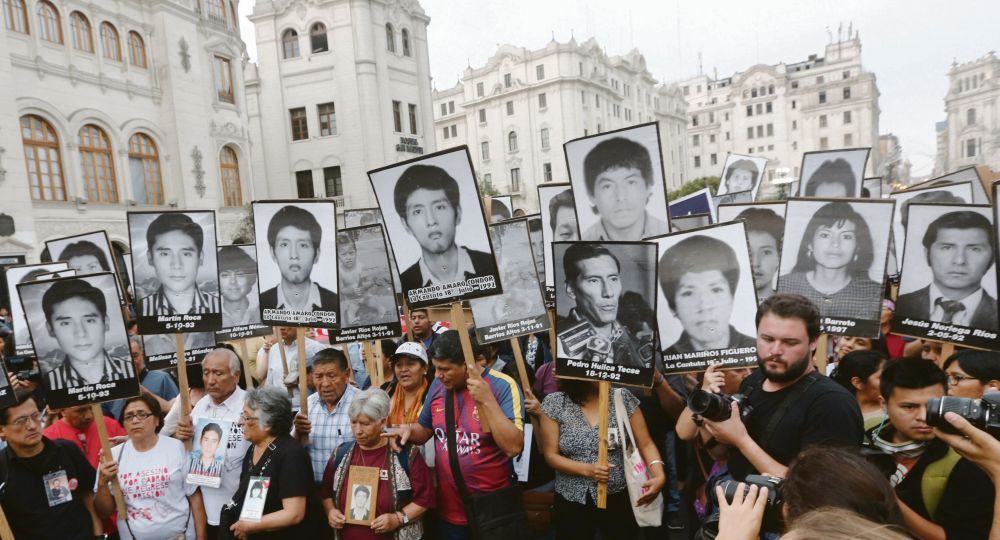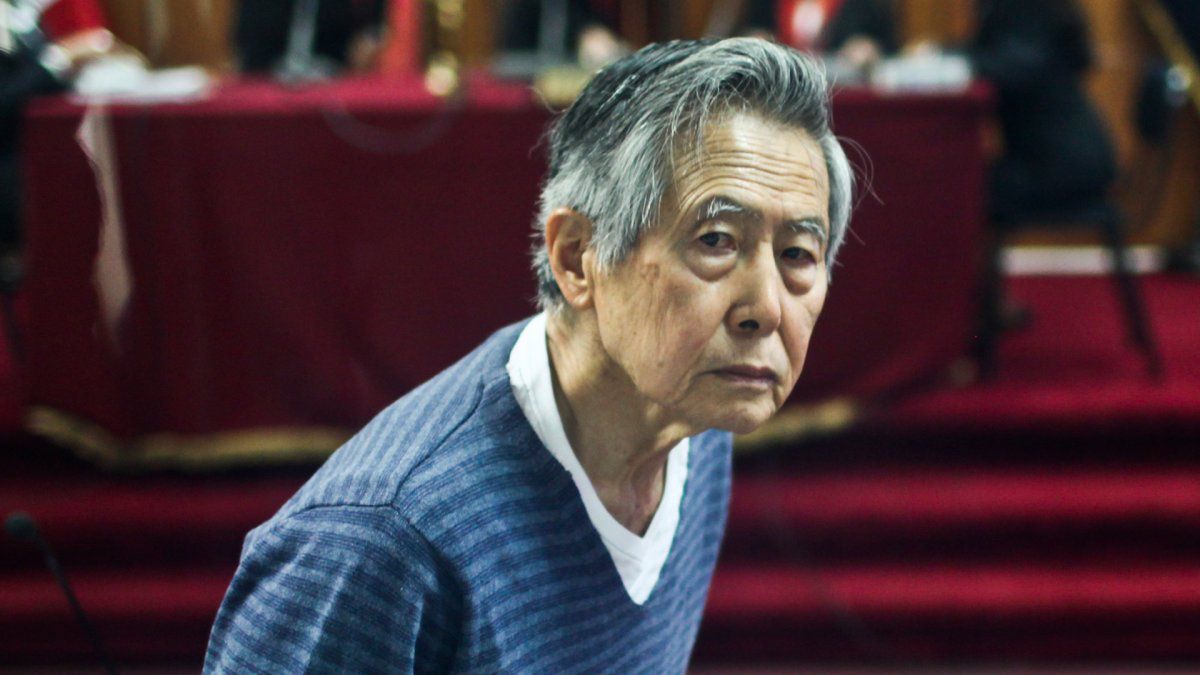“Alberto Fujimori dies at 86 years old.” “Former dictator Alberto Fujimori passed away.” “They cry for the ‘Chino’.” “Fujimori in history.” “Will hatred end?” These were the headlines printed on the morning of September 12 in Peru, one day after the death of President Alberto Fujimori. Alberto Kenya Fujimori Inomoto’s death confirmedthe outsider engineer who became President in 1990staged a self-coup in 1992 and resigned from office from Japan in 2000, via a letter sent by fax.
“The best memory of our dear Alberto is that stabilized the economy, defeated terrorism and built schools“Before, the poor did not have televisions or cell phones. Now even the poorest, the humblest little shack, has a big television and a cell phone,” says a woman who has been waiting for more than four hours to see the coffin.
How to explain the popular fervor towards a political authority who was sentenced to 25 years in prison for, among other crimes?the intellectual authorship of two massacres against 25 people?
In power
Nicknamed “El Chino” for his oriental features, Fujimori came to the presidency in July 1990, after defeating the writer—and today Nobel Prize winner for Literature— Mario Vargas Llosa and a campaign in which took advantage of the crisis of traditional politics to position yourself as an agricultural engineer outside the system.
The crisis corresponded to the state of the country he inherited, with a Annual inflation exceeded 2,700% in 1989and the social scourge caused mainly by the armed terrorist group Shining Path.
FUJIMORI FUNERAL.avif
Fujimori’s funeral took place this Saturday.
Reuters
Despite rejecting the need for economic adjustment during the campaign, when Fujimori took office he adopted a severe anti-inflationary plan known as “Fujishock”, which caused a devaluation of wages and caused discontent in trade union sectors and Congress.
On April 5, 1992, facing a hostile Parliament, Fujimori carried out a self-coup. With the support of the Armed Forces, dissolved Congress and intervened in judicial institutionsMonths later, in September, Abimael Guzmán, leader of Sendero Luminoso, was captured.
Both events resulted in high popularity ratings for the president who, after promoting a New Constitution in 1993easily won the 1995 elections with the support of the working classes.
After constitutionally forcing the possibility of a second re-election, Fujimori won the elections again in 2000. However, the cloak of possible electoral fraud and serious accusations of corruption against his regime and his shadowy advisor, Vladimiro Montesinos, caused his resignation. resignation.
Fujimori had left the country to attend the APEC forum in Brunei, a country in Southeast Asia. After that, he was supposed to go to Panama for another event, but decided to stay in Tokyo. From there, he sent his resignation letter via fax. Congress refused to accept his resignation and dismissed him for “permanent moral incapacity.”
Presidential record
Upon his return to Peru in 2007, Fujimori was tried for a series of crimes that had already been denounced by various social sectors and the press during his government and which accused the existence of a civil-military regime.
Among the crimes was the Formation of the Colina Groupa paramilitary squad that executed two massacres between 1991 and 1992. The first was in the Lima neighborhood of Barrios Altos, where 15 people were killed while attending a party, including an 8-year-old boy. The following year, at La Cantuta University, 9 students and a professor were executed.
Outrage. Relatives of victims of guerrilla warfare in the 1980s and 1990s protested against the pardon of former President Alberto Fujimori.

Protests over crimes against guerrilla groups continued years after his presidency.
In 2009, the Supreme Court sentenced Fujimori to 25 years in prison for indirectly authorizing both massacres. It was the first time that a Former constitutional leader of Latin America was tried and convicted for crimes against humanity in their own country.
In addition to this sentence, there were other charges for participation in two kidnappings, wiretapping, spurious payments to congressmen, the purchase of the editorial line of media outlets and various acts of corruption.
After his death, cases such as the one that remained pending Pativilca massacre and forced sterilizations against more than 270,000 women and 22,000 men, the majority of indigenous origin.
Political relevance
In recent decades, Fujimori played a central role in Peruvian politics and his political movement, Fujimorism, reached three runoff elections led by Keiko Fujimori.
For Hector Villaloboseditor of Politics of the Peruvian newspaper El Comercio, “both for his followers and for his detractors, the political impact that the figure of Fujimori has had is undeniable”, since the last three elections “were marked by the confrontation between Fujimorism and anti-Fujimorism and it is this polarity that led to defining them.”
For his part, the political scientist Eduardo Dargent He maintains that Fujimori “has become a symbol for a sector of the rightpeople who didn’t even know him, but who use him and what Fujimorism was for their current political fights.”
“Fujimorism institutionalized a series of economic policies “These are going to be key to understanding Peru today, with good and bad things. Fujimori was the political face of an alliance that allowed many of the institutions that have endured to be built over 10 years,” he explains.
Regarding the current lament of a certain sector of the population, Villalobos states that “it is because the figure of Fujimori continues to polarize and will continue to do so long after his death.” “He maintains a large base of followers because they are grateful for the success in defeating terrorism and economic recovery“, he warns.
However, the journalist points out that this should not leave aside the institutional breakdown and takeover and human rights violations that occurred during his regime. “His death closes an important chapter in our history and leaves behind a political force that bears his name,” he stressed.
Along the same lines, Dargent states that although “many of the legacies of Fujimorism are terrible in the sense of deinstitutionalizing, disrupting and destroying,” one must not “fail to recognize that It marked politics in Peru in many different ways”.
Source: Ambito
I am an author and journalist who has worked in the entertainment industry for over a decade. I currently work as a news editor at a major news website, and my focus is on covering the latest trends in entertainment. I also write occasional pieces for other outlets, and have authored two books about the entertainment industry.




